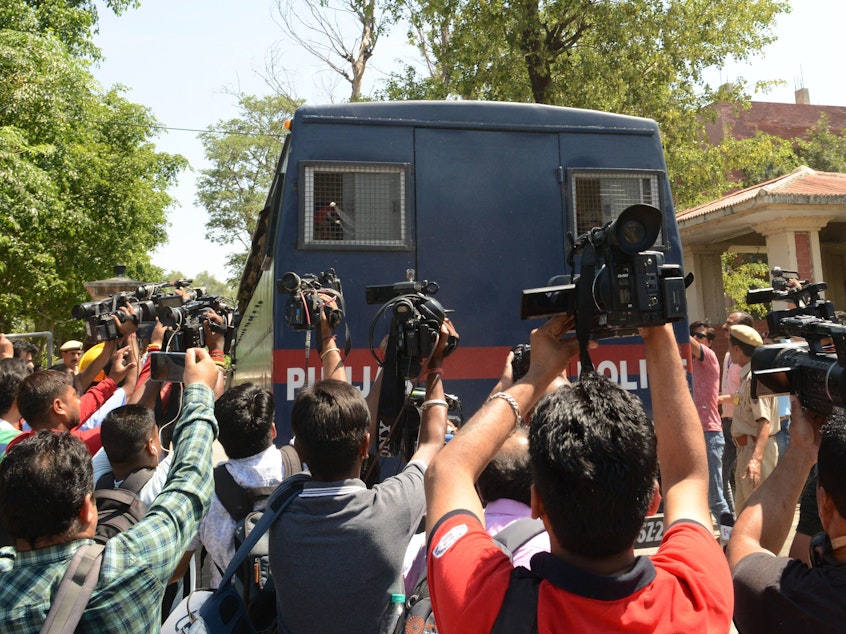Indian Court Convicts 6 Men In Rape And Murder Of 8-Year-Old Girl

The 8-year-old girl was grazing horses in the foothills of the Himalayas when she was lured by kidnappers. Over the next several days, investigators say, she was drugged, starved and gang-raped before being bludgeoned to death with a stone. Her small body was found in a forest.
On Monday, an Indian court convicted six men in her 2018 rape and murder. Three of the men, including a 61-year-old temple priest named Sanji Ram who is believed to be the main conspirator, were sentenced to life, while the other three were found guilty of destroying evidence and given five-year prison terms.
Four former police officers were among those convicted, including the three given shorter sentences.
A seventh suspect was acquitted, while an eighth defendant, who is a minor, will be tried in juvenile court. All eight of the accused had pleaded not guilty.
The case fueled religious tensions in India and sparked nationwide protests — including many in support of the accused. They are all Hindus. The victim was a Muslim girl from a minority nomadic community in the Kathua district of India's northern state of Jammu and Kashmir. Some politicians of the ruling Hindu nationalist Bharatiya Janata Party came out in support of the defendants. When police officers went to file a charge sheet accusing the Hindus, some Hindu lawyers tried to physically block them.
Sponsored
The crime against the girl was apparently a plot to drive away her tribe, which has been involved in a spat over land with the Hindu-majority community in Kathua. She was held captive in a local Hindu temple, where she hidden under a cot in a sedated state.
"Our family has gone through hell. Our hearts are bleeding," the girl's father, Mohammed Akhtar, told The Associated Press after the court's decision was announced.
"Verdict is tribute to her," the victim's lawyer, Deepika Singh Rajawat, tweeted. Mehbooba Mufti, former chief minister of Jammu and Kashmir, welcomed the judgment. "High time we stop playing politics over a heinous crime," she wrote on Twitter.
Some criticized the sentences as not harsh enough. "Why is it that they were not given the death penalty when that is the law of the land?" Swati Maliwal, chairperson for the Delhi Commission for Women, told local media. She urged the Jammu and Kashmir state government to appeal the sentences to a higher court.
The Kathua killing was one of the cases that prompted stricter laws against child rape in India. Last year, Indian lawmakers made a provision for giving the death penalty as punishment in cases of aggravated sexual assault against minors. However, whether those guilty are sentenced to death is left to the discretion of the judge in each case.
Sponsored
Much like the high-profile 2012 gang rape of a paramedical student on a bus in New Delhi, the Kathua case galvanized and horrified India, which has long grappled with the problem of sexual violence against women and girls. Last year, a survey conducted by the Thomson Reuters Foundation ranked India as the most dangerous country for women.
Days before the Kathua verdict, an 8-year-old girl was raped and killed in the city of Bhopal, her body dumped in a drain. Another young girl was raped and strangled to death in Meerut in northern India.
Sushmita Pathak is NPR's producer in Mumbai. [Copyright 2019 NPR]
